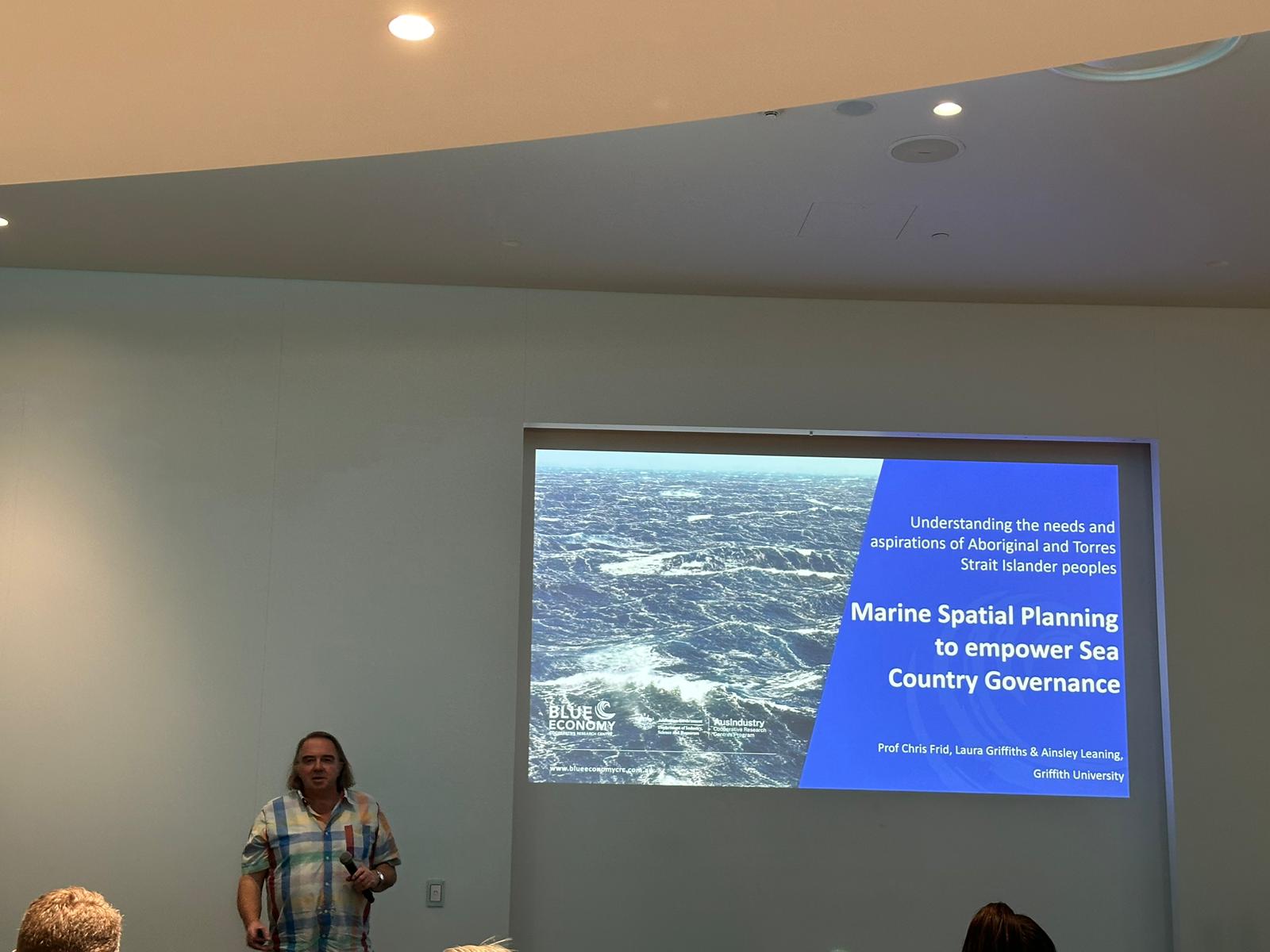The input of First Nations people will be an integral part of decisions about future access to marine spaces and resources under a new marine spatial planning framework being developed.
By Catherine Norwood
A draft set of guiding principles to underpin Australia’s marine spatial planning process and balance user impacts has been released for public comment.
The document, ‘Draft Guiding Principles for an Australian MSP (Marine Spatial Planning) Framework’ has been developed following extensive consultation with First Nations people and other marine stakeholders.
The draft principles – and an operational plan still under development – are part of project undertaken by the Blue Economy Cooperative Research Centre (BECRC).
Project leader Chris Frid, from Griffith University, says a transparent process is needed to incorporate emerging users into the marine space, and potentially new users that haven’t been thought of yet.

“For example, 25 years ago, there was no offshore renewable energy anywhere in the world. Today wind turbines line the coast of most European countries, and a growing number of marine areas have been flagged for similar developments in Australia, although none are yet in the water,” says Chris.
The renewable energy sector is just one of several new players seeking access to Australia’s marine estate. Offshore aquaculture and carbon capture initiatives, shipping, offshore oil and gas industries and marine parks are other players in an already competitive space.
Speaking recently at the inaugural Australian Sea Country Conference, Chris outlined the project’s consultation process with First Nations people. This ran in parallel with consultation involving other current and potential marine users and stakeholders including the fisheries and aquaculture sectors.
There have been discussions with 51 individuals representing 27 First Nations organisations, ranging from the National Sea Country Alliance, Traditional Owner and Ranger groups, as well as individual Elders.
Other stakeholder consultation has involved 182 people from 62 organisations, including government, industry peak bodies, partners in the BECRC, and environmental NGOs.
“There is a great deal of overlap from different stakeholder groups, in wanting a transparent process allowing people from across the space to engage, and for decisions to be evidence-based.
“There is recognition that sharing information will be valuable, but there needs to be accepted boundaries on what is shared, for either commercial or cultural reasons.”
The draft principles incorporate the sentiments of the Nipaluna (Hobart) Statement recognising the “wisdom, kinship and authority” of Aboriginal and Torres Strait Islanders vested in Sea Country.
Chris says Indigenous groups want recognition for the failings of historic processes and the failure to acknowledge the marine sovereignty of First Nations people.
“There are also specific concerns about cultural heritage sites not being properly identified and protected,” says Chris. “The colonisation of Australia dates back only 200 years or so. Indigenous history dates back more than 60,000 years, when areas that are now ‘Sea Country’ weren’t covered by water. We need to take that into account.”
He says it is important that the final agreed process helps to empower First Nations people in the management of Sea Country, including a say in the information that is used in decision-making, and the development of co-benefits supporting Indigenous communities and businesses.
FRDC Senior Research Portfolio Manager Josh Fielding says while FRDC has not had a major involvement in the project, it is important appropriate mechanisms are being developed to engage with Indigenous people and to consider and value their input.
“Ultimately, Indigenous considerations should be built into most if not all projects conducted on sea country in some form, including research,” Josh says.
FRDC Investment in Indigenous RD&E
FRDC is dedicated to investing in research, development, and extension (RD&E) to advance the aspirations of Aboriginal and Torres Strait Islander peoples. The FRDC Indigenous Reference Group (IRG) is a committee comprising Aboriginal and Torres Strait Islander people from diverse backgrounds and with expertise across Australian fishing and aquaculture. In addition to FRDC’s Indigenous Reference Group, several investments are underway to improve business development opportunities as well as ensuring effective consultation pathways for Indigenous Australians. |
Comment on the draft principles for an MSP Framework close on March 1, 2025. More information about the MSP project is available from the Blue Economy CRC.





